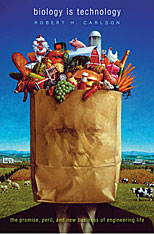
Technology is a process and a body of knowledge as much as a collection of artifacts. Biology is no different—and we are just beginning to comprehend the challenges inherent in the next stage of biology as a human technology. It is this critical moment, with its wide-ranging implications, that Robert Carlson considers in Biology Is Technology. He offers a uniquely informed perspective on the endeavors that contribute to current progress in this area—the science of biological systems and the technology used to manipulate them.
In a number of case studies, Carlson demonstrates that the development of new mathematical, computational, and laboratory tools will facilitate the engineering of biological artifacts—up to and including organisms and ecosystems. Exploring how this will happen, with reference to past technological advances, he explains how objects are constructed virtually, tested using sophisticated mathematical models, and finally constructed in the real world.
Such rapid increases in the power, availability, and application of biotechnology raise obvious questions about who gets to use it, and to what end. Carlson’s thoughtful analysis offers rare insight into our choices about how to develop biological technologies and how these choices will determine the pace and effectiveness of innovation as a public good.

The story has been passed through generations for more than two centuries. Details vary depending on who is doing the telling, but all refer to this momentous maritime event as the Wreck of the Ten Sail. Sometimes misunderstood as the loss of a single ship, it was in fact the wreck of ten vessels at once, comprising one of the most dramatic maritime disasters in all of Caribbean naval history. Surviving historical documents and the remains of the wrecked ships in the sea confirm that the narrative is more than folklore. It is a legend based on a historical event in which HMS Convert, formerly L’Inconstante, a recent prize from the French, and 9 of her 58-ship merchant convoy sailing from Jamaica to Britain, wrecked on the jagged eastern reefs of Grand Cayman in 1794.
The incident has historical significance far beyond the boundaries of the Cayman Islands. It is tied to British and French history during the French Revolution, when these and other European nations were competing for military and commercial dominance around the globe. The Wreck of the Ten Sail attests to the worldwide distribution of European war and trade at the close of the eighteenth century.
In Cayman’s 1794 Wreck of the Ten Sail: Peace, War, and Peril in the Caribbean, Margaret E. Leshikar-Denton focuses on the ships, the people, and the wreck itself to define their place in Caymanian, Caribbean, and European history. This well-researched volume weaves together rich oral folklore accounts, invaluable supporting documents found in archives in the United Kingdom, Jamaica, and France, and tangible evidence of the disaster from archaeological sites on the reefs of the East End.

Too many American families—unstable, broken, often poor—are in serious peril, and both the reality of the situation and the myths obscuring that reality call for attention and swift action. In this most incisive analysis of the parlous state of the family today, Marian Wright Edelman, President of the Children’s Defense Fund, charts what is happening, exposes myths, and sets a bold agenda to strengthen families and protect children. In brilliant strokes and with abundant detail, Edelman describes family conditions over a generation—the rising curve of teenage pregnancy, the overwhelming joblessness of young blacks, the trend toward single-parent households, the increase in hungry and neglected children.
Dispelling common assumptions about these bleak phenomena, she shows that the birth rate for black unmarried women is stabilizing while that for unmarried whites continues to rise, that Aid to Dependent Children does not cause teenage pregnancy or births, and that the child poverty rate has increased two-thirds for whites in recent years, as opposed to one-sixth for black children. Overall, whites are losing ground faster than blacks. Speaking for a growing number of social commentators, she finds the key to explain the rising proportion of births to single black mothers: a lost generation of fathers—young black males unable to marry and support a family, jobless from lack of education and training.
What can be done? Edelman links the family and child poverty crisis to the fragile and ephemeral commitment of government to assist the needy. She suggests establishing a partnership between government, the private sector, and the black community to ensure children food, clothing, housing, medical care, and education. “Preventive investment strategies”—providing health, nutrition, and child care, raising the minimum wage, preventing teenage pregnancies, and opening up educational and employment opportunities for heads of families—will benefit us all. A passionate call to act now, to give real meaning to traditional American instincts for decency, this book is essential reading for everyone committed to preserving the nation’s future.
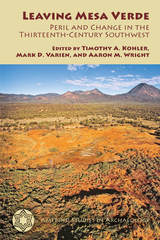
Much new paleoenvironmental data, and a great deal of archaeological survey and excavation, permit the fifteen scientists represented here much greater precision in determining the timing of the depopulation, the number of people affected, and the ways in which northern Pueblo peoples coped—and failed to cope—with the rapidly changing environmental and demographic conditions they encountered throughout the 1200s. In addition, some of the scientists in this volume use models to provide insights into the processes behind the patterns they find, helping to narrow the range of plausible explanations.
What emerges from these investigations is a highly pertinent story of conflict and disruption as a result of climate change, environmental degradation, social rigidity, and conflict. Taken as a whole, these contributions recognize this era as having witnessed a competition between differing social and economic organizations, in which selective migration was considerably hastened by severe climatic, environmental, and social upheaval. Moreover, the chapters show that it is at least as true that emigration led to the collapse of the northern Southwest as it is that collapse led to emigration.
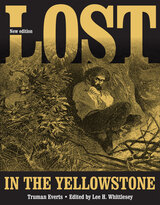
In 1870, Truman Everts visited what would two years later become Yellowstone National Park, traveling with an exploration party intent on mapping and investigating that mysterious region. Scattered reports of a mostly unexplored wilderness filled with natural wonders had caught the public’s attention and the fifty-four-year-old Everts, near-sighted and an inexperienced woodsman, had determined to join the expedition. He was soon separated from the rest of the party and from his horse, setting him on a grueling quest for survival. For over a month he wandered Yellowstone alone and injured, with little food, clothing, or other equipment. In “Thirty-seven Days of Peril” he recounted his experiences for the readers of Scribner’s Monthly.
In June 1996, Everts’s granddaughter arrived at Mammoth Hot Springs in Yellowstone National Park to meet with park archivist Lee Whittlesey. She brought two documents that her father had kept hidden and both were handwritten by Everts. One was a brief autobiography that gave new insight into his early life. The other was a never-published alternative account of his confused 1870 journey through Yellowstone. Both have been added to this volume, further enhancing Everts’s unlikely tale of survival.


Byrd himself was perhaps the early colonial epitome of a patriarch, and typically, when historians examine Byrd and the prominence of patriarchal thought in colonial Virginia, they examine his relationships with his immediate family. In this book, however, Dennis Todd examines the patriarchal relations between Byrd and the workers on his plantations—his apprentices, his wageworkers, his overseers, his white servants, and especially his slaves. In doing so, this book illuminates a neglected stage in the formation of slavery in Virginia. Todd argues that patriarchal principles, which are often assumed to have justified slavery and to have offered a template for slave management, in fact did neither. Byrd was not the only Virginian to wrestle with the contradictions between patriarchal values and the realities of slavery, but few were as articulate.
In examining Byrd through the twin lens of slavery and patriarchy, Patriarchy in Peril makes an important contribution to our understanding of the man and his place in Virginia society as well as the contentious formation of early America.

By the 1990s, wetlands across the United States were endangered from pollution and decades of drainage to convert them into farmland and urban developments. But when deformed frogs—many with missing legs or eyes, footless stumps, or misshapen jaws—began to emerge from Minnesota wetlands, alarm bells went off. What caused such deformities? Pollution? Ultraviolet rays? Biological agents? And could the mysterious cause also pose a threat to humans?
Judy Helgen writes with passionate concern about vulnerable frogs and wetlands as she navigates through a maze of inquisitive media and a reluctant government agency. She reports on the complexity of a growing catastrophe for frogs and broadens the issue as she researches and meets with scientists from around the world. She affirms the importance of examining aquatic life to understand pollution and the need to rescue our remaining wetlands. She also shares the fears expressed by the teachers, students, and other citizens who found these creatures, sensed a problem, and looked to her for answers. Ultimately, this is a story about the biological beauty of wetlands and our need to pay attention to the environment around us.
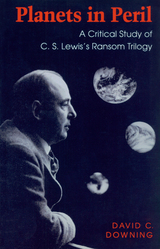
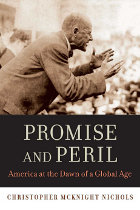
Spreading democracy abroad or taking care of business at home is a tension as current as the war in Afghanistan and as old as America itself. Tracing the history of isolationist and internationalist ideas from the 1890s through the 1930s, Nichols reveals unexpected connections among individuals and groups from across the political spectrum who developed new visions for America’s place in the world.
From Henry Cabot Lodge and William James to W. E. B. Du Bois and Jane Addams to Randolph Bourne, William Borah, and Emily Balch, Nichols shows how reformers, thinkers, and politicians confronted the challenges of modern society—and then grappled with urgent pressures to balance domestic priorities and foreign commitments. Each articulated a distinct strain of thought, and each was part of a sprawling national debate over America’s global role. Through these individuals, Nichols conducts us into the larger community as it strove to reconcile America’s founding ideals and ideas about isolation with the realities of the nation’s burgeoning affluence, rising global commerce, and new opportunities for worldwide cultural exchange. The resulting interrelated set of isolationist and internationalist principles provided the basis not just for many foreign policy arguments of the era but also for the vibrant as well as negative connotations that isolationism still possesses.
Nichols offers a bold way of understanding the isolationist and internationalist impulses that shaped the heated debates of the early twentieth century and that continue to influence thinking about America in the world today.
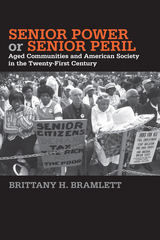
In Senior Power or Senior Peril, Bramlett examines the assertions that the increasing number of older adult-concentrated communities across the United States form a growing bloc of senior power that will influence the redistribution of particularized welfare benefits to older adults at the expense of younger people. However, others suggest that political influence declines with old age. Bramlett uses interviews and on-site research at various senior communities to explore what qualities make an aged community politically unique, and the impact of the local aged context on residents' political knowledge, safety-net policy attitudes, efficacy, and political activity.
This path-breaking book identifies the political behaviors, attitudes, and political consciousness of both older and younger residents as it recounts the perceived and actual political power of seniors.
In the series The Social Logic of Politics, edited by Scott McClurg
READERS
Browse our collection.
PUBLISHERS
See BiblioVault's publisher services.
STUDENT SERVICES
Files for college accessibility offices.
UChicago Accessibility Resources
home | accessibility | search | about | contact us
BiblioVault ® 2001 - 2024
The University of Chicago Press









